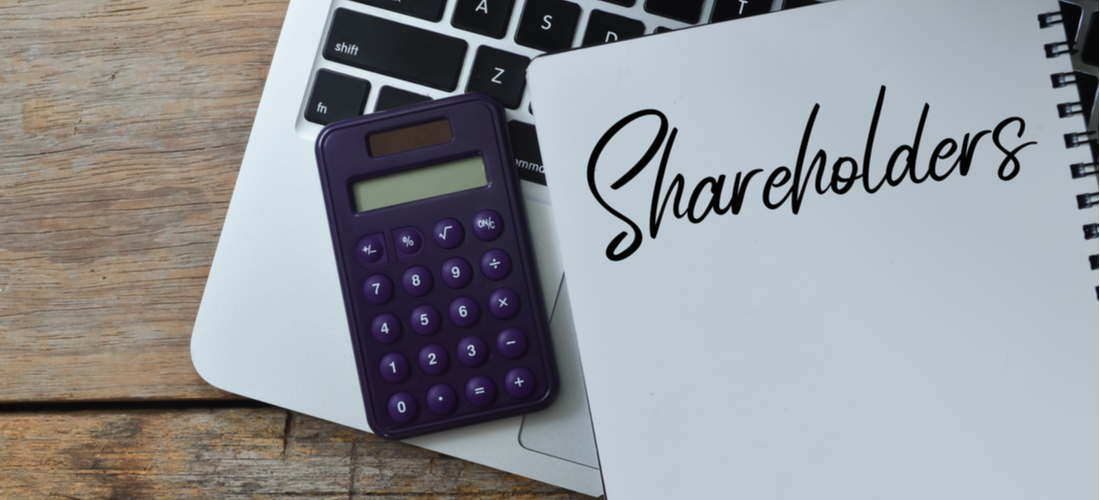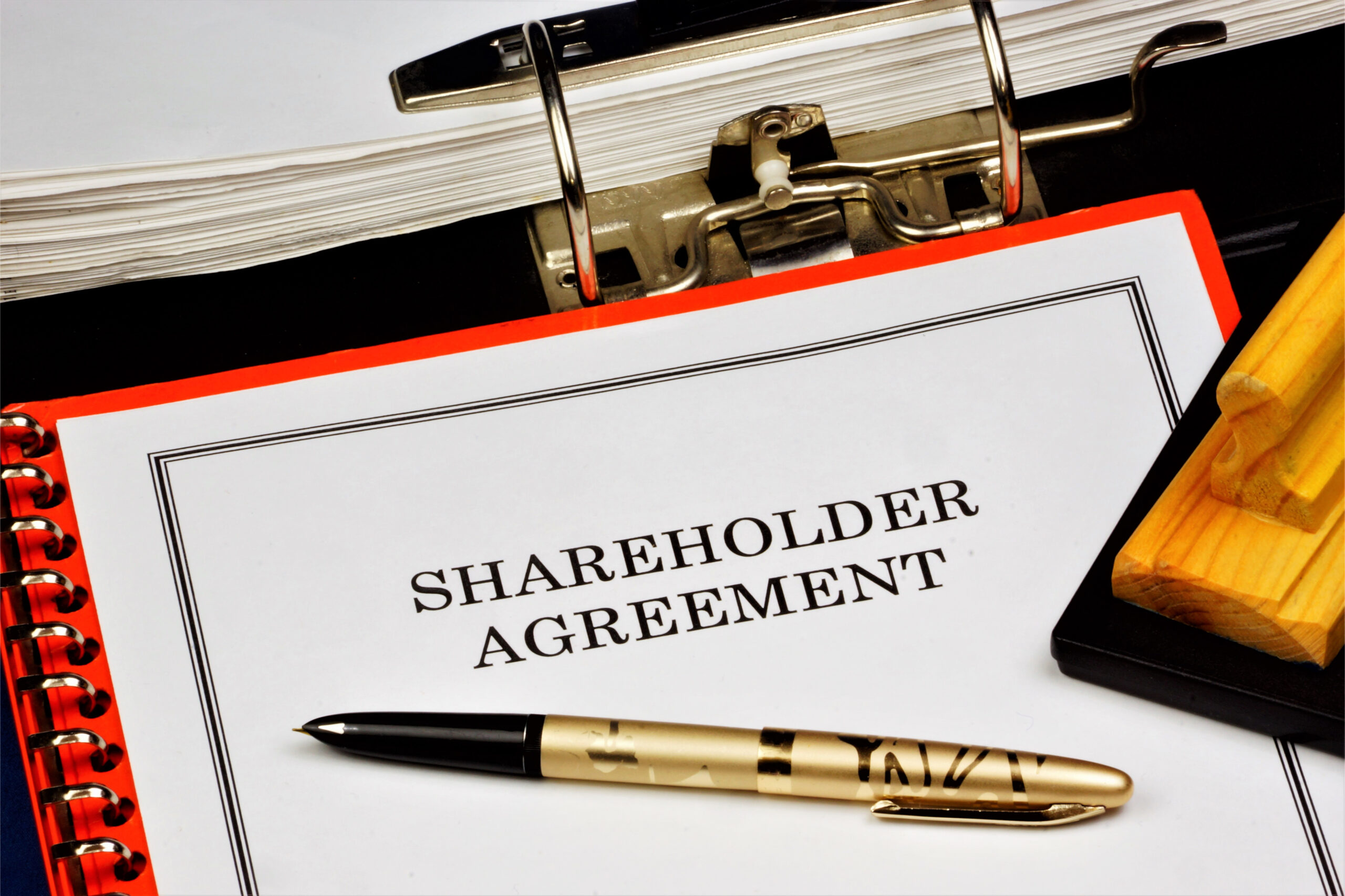If you invest in shares, you can earn dividends or capital appreciation. Learn more about how shareholders make money.
Companies sell stock to raise capital. Shareholders are those who buy those shares. They are called stockholders. Stockholders own a piece of the company. The more shares you own, the bigger your stake. Common stock and preferred stock each have different rights and benefits. A financial advisor can help you understand your stockholder rights and powers. For help in drafting shareholder agreements, contact Vakilsearch.
What Are Shares?
The capital of a company is divided into multiple units. Each unit is called a share. A share is a unit of ownership in a company.
There are two main types of shares:
- Equity
- Preference
Ordinary shares are equity shares. They are the real owners of the company. When you invest in a company’s equity, the number of shares you hold represents your ownership stake. As their name suggests, preference shares take precedence over equity shares in matters such as capital repayment.
Who is a Shareholder?
A shareholder is someone who owns stock in a company. A share is a fractional ownership interest in the company. Buying shares in privately-owned companies is possible, but the average investor will likely invest in companies listed on a stock exchange.
It is common for companies to issue shares of stock for the first time in an initial public offering (IPO). By doing so, new investors can join existing shareholders. Investors can be individuals. But they can also be institutions or other companies.
What Does a Shareholder Do?
A company’s shareholders are not directly involved in the day-to-day operations. If you buy 100 shares of Apple stock, no one will ask you to oversee the budget or sit on the board. However, shareholders can still have a say in what happens in the company and how it is run. Shareholders of many companies meet regularly to discuss and vote on various topics. There may be several elections for directors in your investment company. Shareholders may choose to accept or reject these elections.
Shareholders can also enjoy financial benefits, such as dividends. A dividend is a share of profits. Not all companies distribute dividends. If you own shares of one or more companies that pay dividends, those dividends could be a valuable passive income source.
An increase in stock prices is also beneficial to shareholders. You buy 100 shares of a company at ₹775.89 each, then six months later, the stock price jumps to ₹3,103.57. A ₹2,327.68 profit per share could be earned if you sold. The downside, of course, is that if the stock declines in value, your shares might be worth less than what you initially paid.
How to Become a Shareholder
Individuals and companies can become shareholders in a company in several ways:
Investments in Private Companies:
- To become a shareholder in a company, one needs the consent of the Board of Directors, and a resolution has been passed.
- A private company’s stocks are recorded in a ledger under the supervision of the corporate secretary.
- Upon concluding the price negotiation per number of shares, send the amount to the company.
- The ledger is then updated with ownership information. The owner and secretary sign the share papers.
Making a Purchase:
- In order to purchase stock, you need to place a ‘buy’ order. This is done through your broker or online brokerage service
- The first purchase on a new account requires a minimum budget
- Decide your expenses and verify your budget per share.
To purchase 100 shares of ABC company with a price of ₹25 per share and a commission of 1%, you would need ₹2,500 for the stock and ₹25 for the commission, for a total of ₹2,525 for the deal.
Firm of Brokers
- Brokerage firms buy and sell stocks with other financial institutions.
- Online brokerage firms allow individuals to buy and sell stocks at a fixed price but charge commissions per transaction.
- Brokerage firms are advantageous as they provide market analysis and information to their clients.
The average fee for a broker is 1 to 2 per cent, so a ₹10,000 deal may cost a broker ₹500.
Making Money as a Shareholder
- Earning From Capital Appreciation: One can earn through capital appreciation by making gains on the capital invested when the share price rises. Gains or profits from shares can reach 100 per cent or more. Capital appreciation, however, is not guaranteed. There is always a possibility that the market price will remain lower than the buy price.
- Earning From Dividends: Aside from capital gains on shares, investors may also receive dividends. By declaring partial or full dividends, a company distributes its profits to its shareholders. The company usually distributes some profits and keeps the rest for other purposes, such as expansion. Dividends are paid per share. Assuming a company decides to give ₹10 for every share and the face value of the share is ₹10, it is called a 100 per cent dividend.
The dividend yield is calculated as follows:
| (Dividend Yield = Cash Dividend per share / Market Price per share * 100.) |
Rights Issue and Bonus Issue of Shares
Dividends aren’t the only way to make money as a shareholder. Companies sometimes reward shareholders in non-cash ways as well. Right issues and bonus shares are popular ways to do this. Let’s learn more about them. In some cases, instead of a dividend payout, companies issue additional shares free of charge to existing shareholders. This free issue of shares is known as a ‘bonus issue’. The bonus shares are generally distributed in proportion to the original shares. If the company issues bonus shares on a 1:1 basis, you will receive one bonus share for each existing share you own. This bonus issue increases the number of shares you hold and reduces your investment costs.
Occasionally, companies announce a rights issue instead of a dividend. In a rights issue, existing shareholders are offered the opportunity to buy additional shares at a significantly lower price than the current market price. Like a bonus issue, a rights issue is also offered in proportion to shares already held.
What Makes Shareholding Different from Other Ways to Invest?
When you buy stocks in a company, you become a shareholder agreement. Companies also raise money in other ways. Banks and venture capitalists (VCs) are big players here. Also, these parties invest or lend money to a business. Let’s see how they differ from stock ownership.
Shareholders vs. venture capital investors
Any investor in a company can be a shareholder. Venture capital investors invest heavily in startups and other young companies. Therefore, they have a substantial stake in those ventures.
Shareholders vs. lending banks
Startups and established businesses alike obtain loans from banks to fund major business processes. Through this channel, funds are obtained that are entirely different from what investors and shareholders put into the business. Businesses are required to repay the loans they borrow, making the banks their creditors (and not their investors).
Also, Read:









